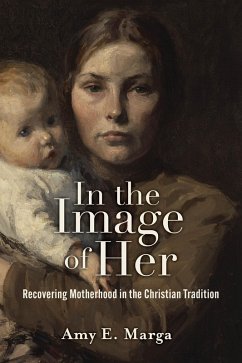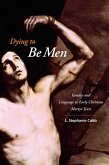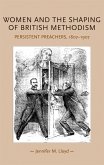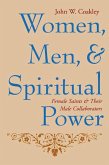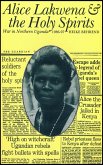The body of the mother is both everywhere and nowhere in the Christian imagination. Western Christianity has long viewed the mother's body as a vessel. Through her, nothing less than the sin and the salvation of all humanity entered history. Eve birthed children into sin, and the Virgin Mary brought forth the savior of the world. Christian theologians across the centuries have largely focused on these two idealized mothers at the expense of actual biological mothers. By the same token, modern feminist theology has shied away from seeing mothers as feminist agents in God-talk in its drive toward equity in religious leadership.
With In the Image of Her, Amy Marga argues that a feminist, maternal theology is an overlooked and yet critical perspective for our understanding of God's work in the world. Far from only being vessels of new creation, the bodies of mothers are distinct ecosystems of God's creative agency and demonstrate how God's work involves both cooperation and competition. Marga seeks to broaden the Christian imagination about women and creativity and to liberate actual biological mothers from myths of Christian motherhood. Two kinds of historical evidence give us some sense of what Christians imagined about mothering and women who were mothers: discourse from within the all-male theological writing establishment and documented practices of women around the events of motherhood, such as magical customs around pregnancy and birth; the pilgrimages women took in order to pray for safe delivery; and ecclesiastical rituals such as postpartum rites of purification.
It may seem that mothers' perspectives and practices did not influence the Christian theological imagination. Marga, however, maps historical and theological developments around Christian perspectives on mothering to show that Christian mothers-along with and in spite of male-dominated institutions and ideas-have continued to shape their own motherhoods, creatively and boldly adapting the received traditions of the faith to their circumstances for their own survival and the survival of their children.
With In the Image of Her, Amy Marga argues that a feminist, maternal theology is an overlooked and yet critical perspective for our understanding of God's work in the world. Far from only being vessels of new creation, the bodies of mothers are distinct ecosystems of God's creative agency and demonstrate how God's work involves both cooperation and competition. Marga seeks to broaden the Christian imagination about women and creativity and to liberate actual biological mothers from myths of Christian motherhood. Two kinds of historical evidence give us some sense of what Christians imagined about mothering and women who were mothers: discourse from within the all-male theological writing establishment and documented practices of women around the events of motherhood, such as magical customs around pregnancy and birth; the pilgrimages women took in order to pray for safe delivery; and ecclesiastical rituals such as postpartum rites of purification.
It may seem that mothers' perspectives and practices did not influence the Christian theological imagination. Marga, however, maps historical and theological developments around Christian perspectives on mothering to show that Christian mothers-along with and in spite of male-dominated institutions and ideas-have continued to shape their own motherhoods, creatively and boldly adapting the received traditions of the faith to their circumstances for their own survival and the survival of their children.
Dieser Download kann aus rechtlichen Gründen nur mit Rechnungsadresse in A, D ausgeliefert werden.

